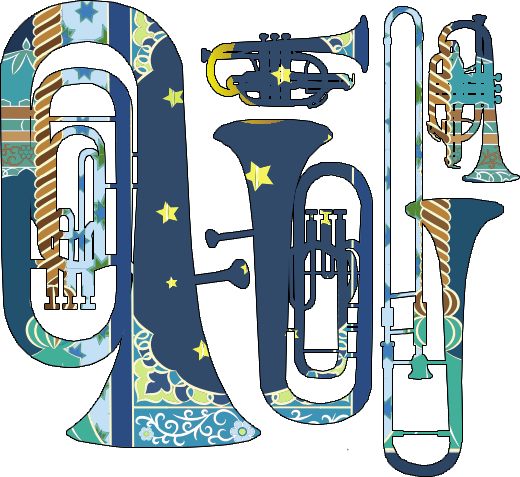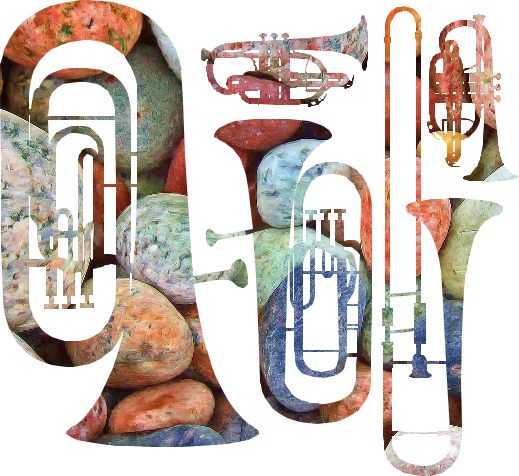Results
-
 £14.95
£14.95Funk Engine (Score Only)
'Funk Engine' was commissioned by Brass Bands England for the 2016 National Youth Brass Band Championships of Great Britain. What Ryan says about the piece:"When I was commissioned to write a piece for the Championships I decided that I wanted to create something a bit different to standard brass band repertoire. I decided that the best way to do this was to go a bit out of my comfort zone and explore some styles of music that I have yet to experiment with. I have always been a great lover of jazz, funk and big band music and the sounds associated with them. In 'Funk Engine' I have tried to capture some of these sounds, however I am a brass-bander at heart and as such I've tried to create a fusion of styles that hopefully combines the best of brass band and jazz into one piece.'Funk Engine' runs continuously, but is divided into three broad sections - fast, slow, fast. The opening is in driving big band style, which segues into a smoother lyrical section; the pace then picks up into a jazz inspired scherzo. After a delicate transition from the basses and trombones the euphonium plays a soaring scale - bringing us into the central movement - which begins with a series of languid solos before descending into a darker interlude. A flugel solo lightens the mood and the music gains momentum leading into a brief cornet chorale before a euphonium solo leads into a percussive climactic passage for full band. As this section winds down to settle on an open fifth, the Hi-hat and Bass section punctuate the texture with the first notes of the final section."The final section of the piece is in similar big band style to the opening and develops material from the first two movements. The percussion feature heavily at this stage and the tension builds towards a final statement, with the piece concluding with a bang!"
Estimated dispatch 7-14 working days
-
 £64.99
£64.99Olympus - Philip Harper
Selected as the test-piece for the 3rd Section Regional contests of the National Brass Band Championships 2012The music begins with a depiction of the exciting Opening Ceremony where noisy fanfares and sudden swells add to the cosmopolitan flag-waving clamour. Without a break the music leads to The Chariot Race, a fast compound-time gallop withthundering hooves in the basses and percussion, and a heroic melody introduced by the tenor horns. Chariot racing was the main equestrian event in the Ancient Greek Games, which were founded in memory of King Oenomaus. In the Greek legend he suffereddefeat in a chariot race to his son-in-law and Zeus' grandson, Pelops, but much of the music is bitter-sweet to symbolise the fact that Pelops had to cheat to win drawing parallels with some of the issues still facing modern-day athletics. A slow, mystical passage follows, describing The Temple of Zeus at Olympia. The statue of Zeus, who was honoured throughout the Ancient Games' history, was housed inside the temple and was one of the Seven Wonders of the Ancient World. Themusic depicts this period of the dawn of one of mankind's most ancient civilisations and there is a series of solo passages above a drone. The next section is called The Olympic Flame and a broad and lyrical anthem-like melody develops slowly in the euphoniums, which gradually ascends until the horns can take it over before passing upwards again to the cornets (Higher). The musicbursts into bright life at the lighting of the flame and the regular rhythmic pattern which has been established goes through an accelerando (Faster). The final section is called The Olympic Truce and aims to capture the cooperative spirit of the ancient practice of ending wars for the duration of the games. The anthem-like melody makes an affirmatory return (Stronger) and the work ends asit began with a blaze of colour and a real sense of optimism and global celebration. "Citius, Altius, Fortius" (Faster, Higher, Stonger)NOTES ON PERFORMANCEPercussion requirements: 1 to 3 players (3 Timpani, Snare Drum, Tenor Drum, Cymbals, Glockenspiel, Triangle)
Estimated dispatch 5-14 working days
-

Dardanella | Bernard & Black arr. Dario Salvi
'Oh Sweet Dardanella, I love your harem eyes. I'm a lucky fellow, to capture such a prize'Dardanella was written in 1919 and became one of the most popular songs of the 1920's selling 13 million copies, going on to become a huge jazz standard covered by the likes of Louis Armstrong and Bing Crosby amongst others.This arrangement for Brass Band by Dario Salvi takes us back to the most famous version of 1920 sung by Vernon Dalhart and Gladys Rice, where the opening calls to mind the sounds of a fairground.Dario's arrangement moves between styles with an almost clockwork sound at one point changing to laid back swing beat at another, all supporting this cheerful melody. An excellent programme filler.Instrumentation:Soprano, Solo, Repiano, 2nd and 3rd CornetsFlugelhornSolo, 1st and 2nd Tenor Horns1st and 2nd Baritone1st, 2nd and Bass TromboneSolo and 2nd EuphoniumEb and Bb BassesPercussion parts:Drum KitXylophoneISMN: 979-0-708127-87-1
-

Gymnopedie No 1 | Satie arr. Leigh Sharpe
The Gymnopedies by Erik Satie are three piano compositions of extraordinary beauty. Gentle, eccentric pieces which defied the classical tradition. The name Gymnopedie is thought to be a reference to Satie's joke at a party when, concerned by his lack of formal qualifications, on being asked his profession, he replied Gymnopaedist - which means - 'naked athlete'.Instrumentation:Soprano, Solo, Repiano, 2nd and 3rd CornetsFlugelhornSolo, 1st and 2nd Tenor Horns1st Baritone1st, 2nd and Bass TromboneSolo and 2nd EuphoniumEb and Bb BassesPercussion parts:1: Glockenspiel2: CymbalsISMN: 979-0-708127-86-4
-

La Calinda | Delius arr. Leigh Sharpe
Taken from the opera 'Koanga' by Frederick Delius. Koanga is the hero of the opera, an African prince and voodoo priest stolen away and now working as a slave on a Mississippi plantation who falls in love with a fellow slave; Palmyra.This piece is a faithful arrangement of Delius's masterpiece for Brass Band, and features a well loved and catchy lyrical theme. La Calinda is not a simple piece to play, but well worth investing in.An excellent concert piece.Instrumentation:Soprano, Solo, Repiano, 2nd and 3rd CornetsFlugelhornSolo, 1st and 2nd Tenor Horns1st and 2nd Baritone1st, 2nd and Bass TromboneSolo and 2nd EuphoniumEb and Bb BassesTimpaniPercussion:1.Tambourine, Floor Tom2.Glockenspiel3.VibraphoneISMN: 979-0-708127-91-8
